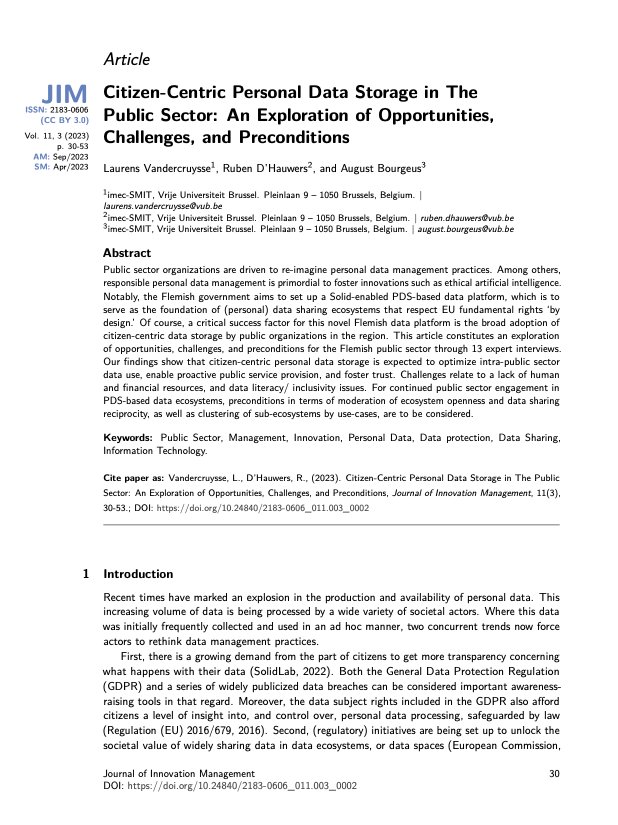Citizen-Centric Personal Data Storage in The Public Sector: An Exploration of Opportunities, Challenges, and Preconditions
Main Article Content
Abstract
Public sector organizations are driven to re-imagine personal data management practices. Notably, the Flemish government aims to set up a Solid-enabled PDS-based data platform, which is to serve as the foundation of (personal) data sharing ecosystems that respect EU fundamental rights ‘by design.’ Of course, a critical success factor for this novel Flemish data platform is the broad adoption of citizen-centric data storage by public organizations in the region. This article constitutes an exploration of opportunities, challenges, and preconditions for the Flemish public sector through 13 expert interviews. Our findings show that citizen-centric personal data storage is expected to optimize intra-public sector data use, enable proactive public service provision, and foster trust. Challenges relate to a lack of human and financial resources, and data literacy/ inclusivity issues. For continued public sector engagement in PDS-based data ecosystems, preconditions in terms of moderation of ecosystem openness and data sharing reciprocity, as well as clustering of sub-ecosystems by use-cases, are to be considered.
Article Details
Authors who publish with this journal agree to the following terms:
- Authors retain copyright and grant the journal right of first publication with the work simultaneously licensed under a Creative Commons Attribution License that allows others to share the work with an acknowledgement of the work's authorship and initial publication in this journal.
- Authors are able to enter into separate, additional contractual arrangements for the non-exclusive distribution of the journal's published version of the work (e.g., post it to an institutional repository or publish it in a book), with an acknowledgement of its initial publication in this journal.
- Authors are permitted and encouraged to post their work online (e.g., in institutional repositories or on their website) prior to and during the submission process, as it can lead to productive exchanges, as well as earlier and greater citation of published work (See The Effect of Open Access).

